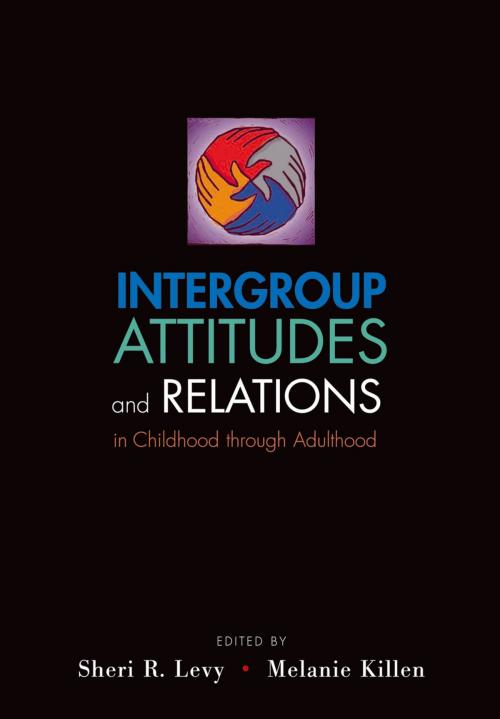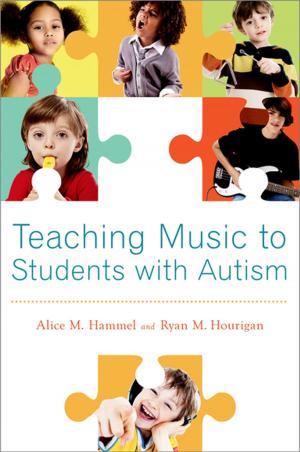Intergroup Attitudes and Relations in Childhood Through Adulthood
Nonfiction, Health & Well Being, Psychology, Clinical Psychology, Cognitive Psychology, Social Psychology| Author: | ISBN: | 9780190293505 | |
| Publisher: | Oxford University Press | Publication: | February 15, 2008 |
| Imprint: | Oxford University Press | Language: | English |
| Author: | |
| ISBN: | 9780190293505 |
| Publisher: | Oxford University Press |
| Publication: | February 15, 2008 |
| Imprint: | Oxford University Press |
| Language: | English |
This edited volume captures an exciting new trend in research on intergroup attitudes and relations, which concerns how individuals make judgments, and interact with individuals from different group categories, broadly defined in terms of gender, race, age, culture, religion, sexual orientation, and body type. This new approach is an integrative perspective, one which draws on theory and research in the areas of developmental and social psychology. Throughout human history, intergroup conflict has often served as the basis for societal conflict, strife, and tension. Over the past several decades, individual and group mobility has enabled individuals to interact with a wider range of people from different backgrounds than ever before. On the one hand, this level of societal heterogeneity contributes to intergroup conflict. On the other hand, the experience of such heterogeneity has also reduced stereotypes, and increased an understanding of others' perspectives and experiences. Where does it begin? When do children acquire stereotypes about the other? What are the sources of influence, and how does change come about? To provide a deeper understanding of the origins, stability, and reduction of intergroup conflict, scholars in this volume report on current, cutting edge theory and new research findings. Progress in the area of intergroup attitudes relies on continued advances in both the understanding of the origins and the trajectory of intergroup conflict and harmony (as historically studied by developmental psychologists) and the understanding of contexts and conditions that contribute to positive and negative intergroup attitudes and relations (as historically studied by social psychologists). Recent social and developmental psychology research clarifies the multifaceted nature of prejudice and the need for an interdisciplinary approach to addressing prejudice. The recent blossoming of research on the integration of developmental and social psychology represented in this volume will appeal to scholars and students in the areas of developmental psychology, social psychology, cognitive psychology, education, social neuroscience, law, business, and political science.
This edited volume captures an exciting new trend in research on intergroup attitudes and relations, which concerns how individuals make judgments, and interact with individuals from different group categories, broadly defined in terms of gender, race, age, culture, religion, sexual orientation, and body type. This new approach is an integrative perspective, one which draws on theory and research in the areas of developmental and social psychology. Throughout human history, intergroup conflict has often served as the basis for societal conflict, strife, and tension. Over the past several decades, individual and group mobility has enabled individuals to interact with a wider range of people from different backgrounds than ever before. On the one hand, this level of societal heterogeneity contributes to intergroup conflict. On the other hand, the experience of such heterogeneity has also reduced stereotypes, and increased an understanding of others' perspectives and experiences. Where does it begin? When do children acquire stereotypes about the other? What are the sources of influence, and how does change come about? To provide a deeper understanding of the origins, stability, and reduction of intergroup conflict, scholars in this volume report on current, cutting edge theory and new research findings. Progress in the area of intergroup attitudes relies on continued advances in both the understanding of the origins and the trajectory of intergroup conflict and harmony (as historically studied by developmental psychologists) and the understanding of contexts and conditions that contribute to positive and negative intergroup attitudes and relations (as historically studied by social psychologists). Recent social and developmental psychology research clarifies the multifaceted nature of prejudice and the need for an interdisciplinary approach to addressing prejudice. The recent blossoming of research on the integration of developmental and social psychology represented in this volume will appeal to scholars and students in the areas of developmental psychology, social psychology, cognitive psychology, education, social neuroscience, law, business, and political science.















